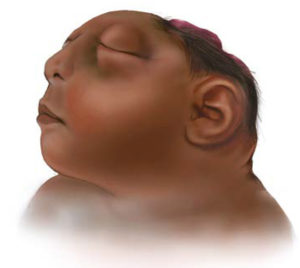Based on the report of the medical board constituted by AIIMS, the Delhi High Court on Monday allowed a petition filed by a woman seeking the termination of her 28-weeks pregnancy. They said in its report that the fetus suffered from anencephaly, a disorder where the skull bone is not developed and was thus incompatible with life, therefore her fetus can be aborted.

The bench comprising of Chief Justice DN Patel and Justice Jyoti Singh had asked the All India Institute of Medical Sciences (AIIMS) to constitute a medical board for examination of the woman about the feasibility of the termination of pregnancy and to give a report on 11 January.
As the plea of the woman,
“an ultra-sonography at the gestational age of 27 weeks 5 days found that the fetus suffered from anencephaly (skull bone not formed) thereby making it incompatible with life.”
The bench has therefore given the permission of medical termination to the woman based on the report by the AIIMS Medical Board.
Further orders will be notified soon.
The woman had challenged the provision of the Medical Termination of Pregnancy Act of 1971 which prohibits abortion of a fetus after 20 weeks of gestation. She said that at this time when the technology is so advance, a woman can abort a fetus at any time during her pregnancy.
She also said that many times the determination of fetus abnormality can be done only after 20 weeks.
“By keeping the ceiling artificially low, women who obtain reports of serious fetal abnormality after the 20th week have to suffer excruciating pain and agony because of the deliveries that they are forced to go through.”
“The ceiling of 20 weeks is therefore arbitrary, harsh, discriminatory and violative of Articles 14 and 21 of the Constitution of India” she claimed.
Recently, the Delhi High Court allowed another termination of pregnancy in the case where the fetus was suffering from Bilateral Agenesis and Anlyaramni. In this condition, both the kidneys of the fetus were absent. As a result of which it would be almost impossible for the foetus to survive.
Libertatem.in is now on Telegram. Follow us for regular legal updates and judgement from the court. Follow us on Google News, Instagram, LinkedIn, Facebook & Twitter. You can also contribute blog, articles, story tip, judgment and many more and help us spread awareness for a better society. Submit Your Post Now.

